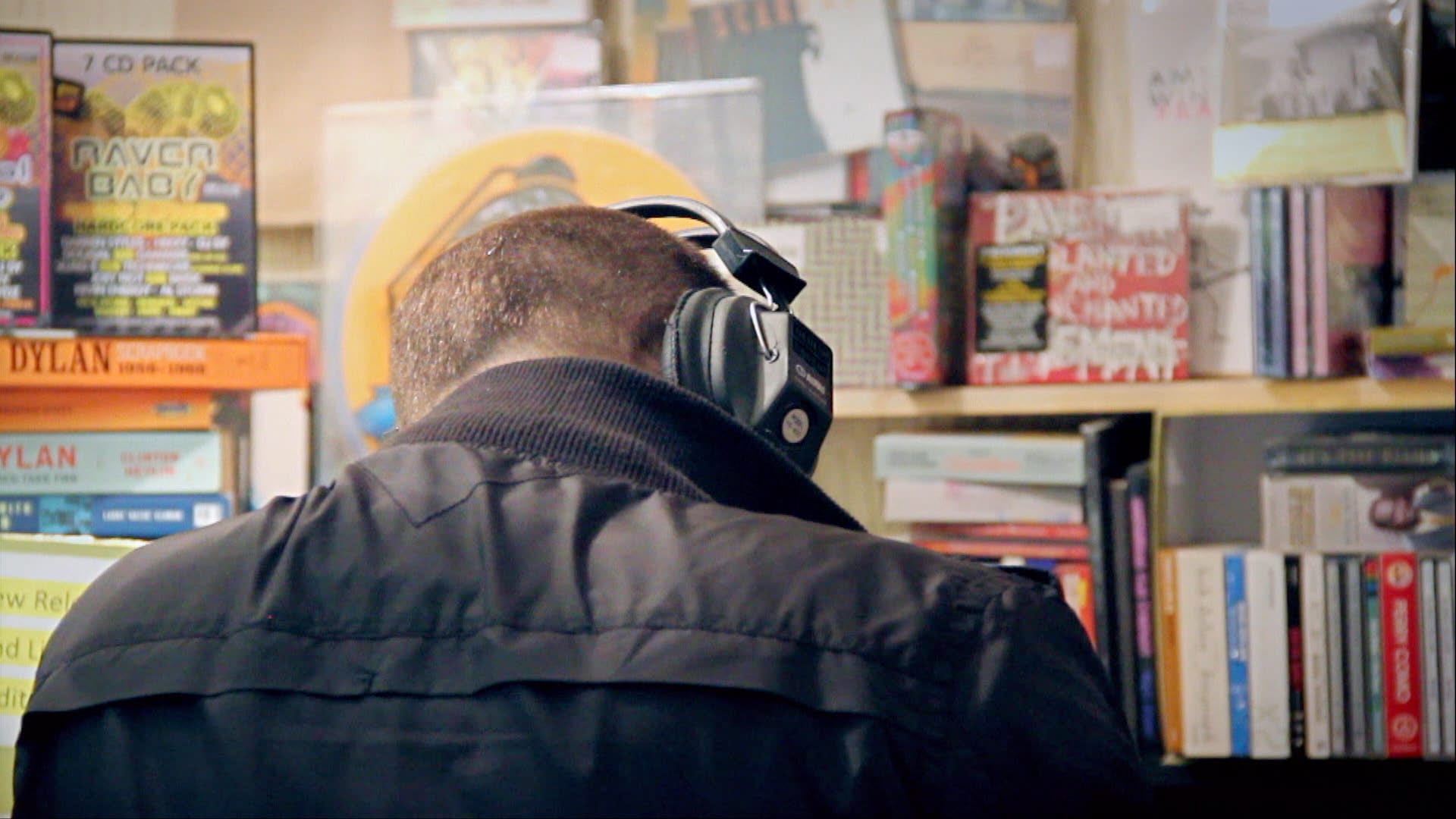Stories in Unlikely Places: A Conversation with Jeanie Finlay

The British filmmaker Jeanie Finlay has mastered the art of listening. In a documentary marketplace saturated with trashy true crime, celebrity branding exercises, and issue docs cynically designed for “impact,” her nonfiction work stands out for the tenderness, humanity, and specificity of its approach. The intimacy she creates on-screen is the result of her keen and careful attention. She refuses to disappear herself: her presence behind the camera is quiet but felt.
The director of nine documentary features, Finlay is drawn to unlikely subjects and settings: ordinary British teenagers in their bedrooms (Teenland, 2007); the last remaining indie record store in Teesside, three miles from where she grew up (Sound It Out, 2011); and a trans man determined to give birth (Seahorse: The Dad Who Gave Birth, 2019). In her eyes, no story is too small or unimportant. She is especially drawn to people who create new identities for themselves, and her interest is evident in The Great Hip Hop Hoax (2013), a weird and witty film about a Scottish rap duo who convince the world they are from California, and the heartbreaking Orion: The Man Who Would Be King (2015), about a masked singer many believed was Elvis Presley reincarnated.
Four of Finlay’s films are playing on the Criterion Channel this month, and her newest film, Your Fat Friend, a personal portrait of fat activist Aubrey Gordon, has played at Tribeca Film Festival. To mark the occasion, I had a wide-ranging conversation with the director about how she approaches documentary like an artist and why she thinks shy people often have the most to say.






